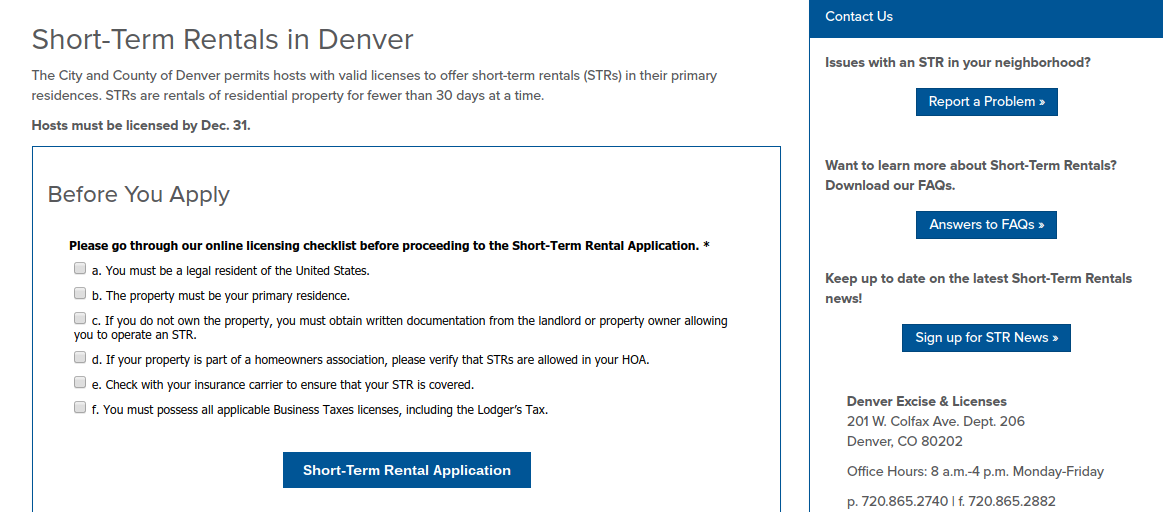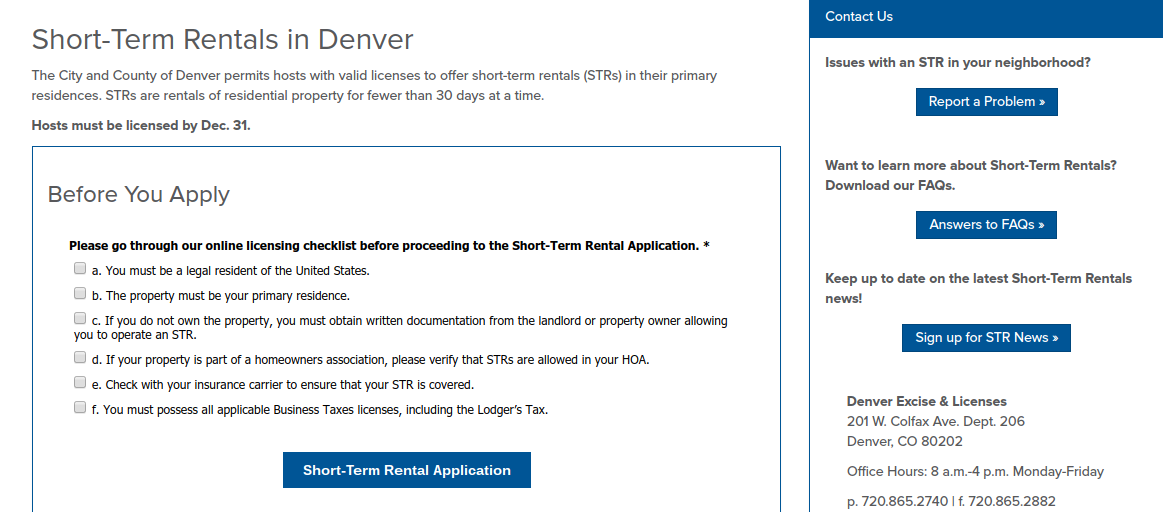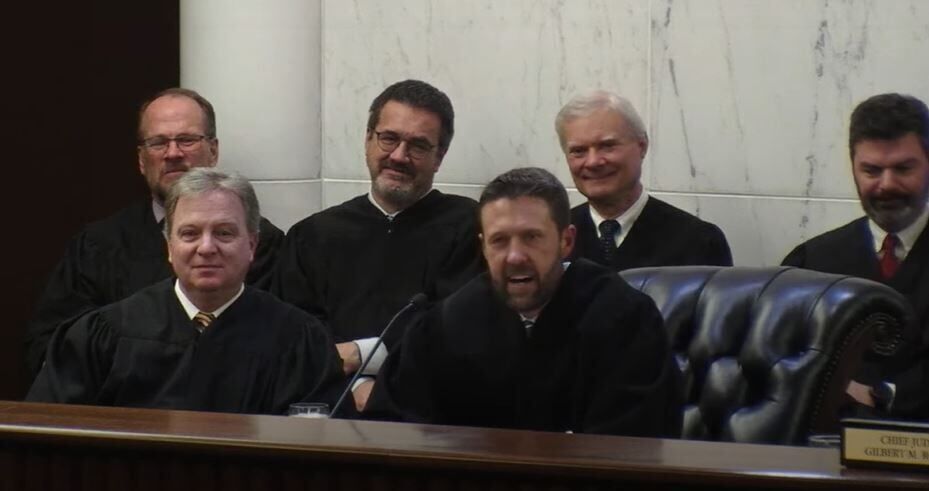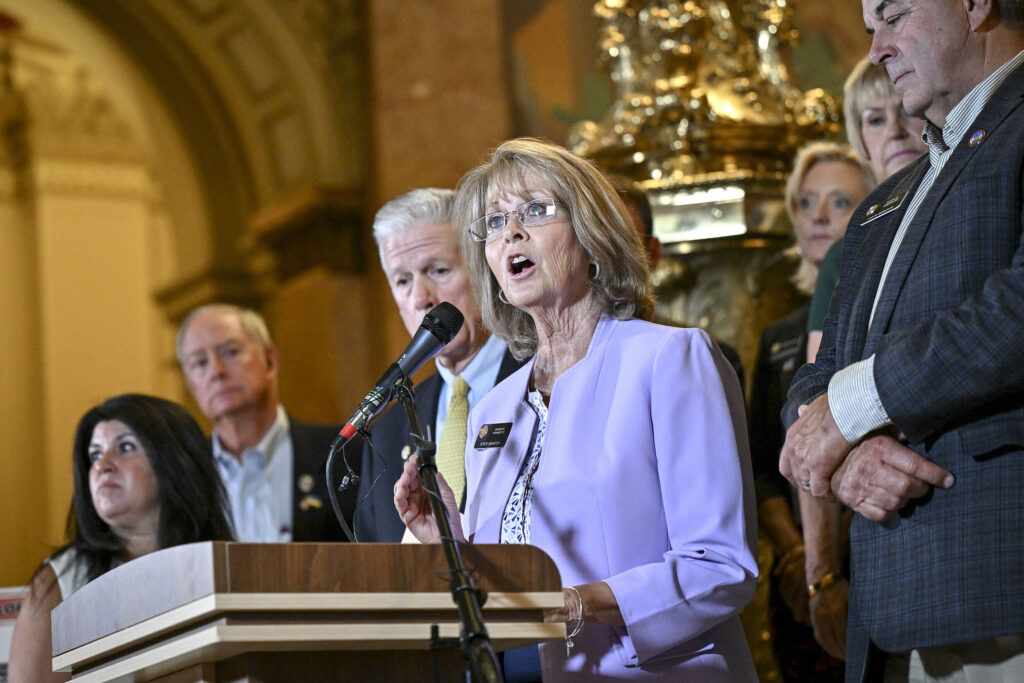Short-term rentals in Denver rules kick into effect

Denver’s new online licensing program for owners of short-term rentals launched Friday, marking the start of a long-term practice in the city being made legitimate in the eyes of the law.
The city’s new rules passed Denver City Council on a 9-2 vote on June 13, created a system where property owners can apply for a license to offer their primary residence for short-term rental. While short-term rentals have been plentiful for a substantial amount of time in Denver, it was in reality an illegal business that the city saw no tax revenue from.
The licensing program will be a complete online application, part of Denver’s efforts to gain as high of compliance as possible, said Dan Rowland, a spokesman for city government.
“It’s exciting and makes perfects sense for short-term rentals because it’s an online business and we’re really committed to creating business licenses that meet people where they are. This is a great first step for that,” Rowland said. “This is a tech savvy user group and this technology has proliferated because it’s easy to use. … We thought if we’re going to license this, we need to make it similarly tech friendly.”
Property owners who want to put their homes or rooms up for a short-term rental can apply for a business license, he said. That license number will be included in any listing online. Already Friday the city had listings on short-term rental websites that included a license number from the city.The new system rolled out Friday but owners have until Dec. 31 to sign up for the license. Rowland said the next few months will be about educating property owners about short-term rental licensing and best practices and not writing tickets.
The new system was the result of an extensive stakeholder process from property owners, neighborhood associations, renters, hotel associations and the short-term rental companies themselves such as Airbnb and VRBO, said District 5 Councilwoman Mary Beth Susman, who helped lead the two-year process.
A major point of contention even after the lead up was finished and new rules were proposed and passed was the exclusion of non-primary residences from being rented. Neighborhood associations argued investors could turn residential areas into de facto hotels while property owners said it was unfair to exclude them from a system that helped them pay the bills.
“We tried to find what compromises we could reach and at the end of it when we made those rules, all the neighborhood groups that wrote in approved of the regulation of the primary residence of individuals. Although some neighborhood groups weren’t happy about it at all,” Susman said. “We thought it would be a good way to begin to allow it. Also we were fortunate not to be the first city to do this. We weren’t the first city to do it like we were with marijuana. We were able to look at the missteps of other cities that had gone through the process.”
Another reason some objected to property owners being able to buy a home or apartment strictly to rent while living in another property was the possible effect on rental prices. While there isn’t substantial data either way about how property being bought exclusively for short-term rentals affects rental rates, Rowland said that would be one of the many things the city’s new working group on short-term rentals would most likely tackle.
The working group, which should be formed and in session by this fall, will consist of as many stakeholders as possible. While the direction and goal of the working group will be determined for a large part by its members, Rowland said seeing how the new system runs and how it affects the city will most likely be a major focus.
“We might be able to get some more data and analysis around that issue. There will be things like that we will need to dive deeper into as it rolls out. And that working group platform will be a great vehicle for that,” Rowland said.
The city wants as many members on the working group as possible to get as much feedback as possible. The array of opinions that could end up on board could make funding consensus difficult. But Susman said she wasn’t too concerned about that being an issue.
“Well that’s the nature of political representation,” Susman said. “It’s impossible to please everybody all the time. My hope is they’ll also be able to give us feedback of the effectiveness of the way we’re regulating this industry.”














